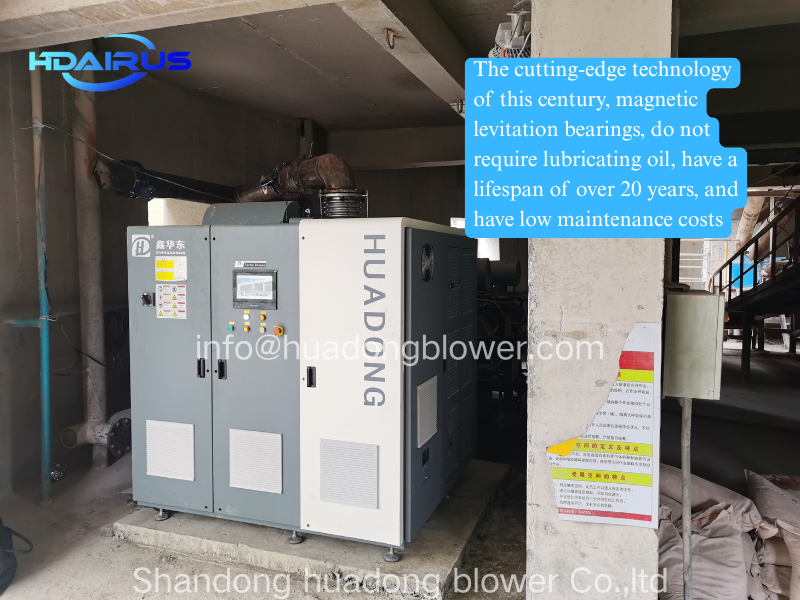As magnetic suspension blowers gain popularity in industrial applications, especially in wastewater treatment plants, many operators wonder: Do magnetic suspension blowers experience surging? More importantly, how can facilities reduce surging risks while improving energy efficiency? Let’s explore the answers.
Understanding Surging in Blowers
Surging, a common challenge in traditional blowers, occurs when airflow reverses abruptly due to pressure imbalances between the blower and pipeline system. This phenomenon causes vibrations, noise, and even equipment damage. While magnetic suspension blowers use advanced technology to minimize surging, they are not entirely immune—especially under extreme operational conditions.
Why Do Wastewater Treatment Plants Face Surging Risks?
Wastewater plants operate in dynamic environments. Factors like fluctuating water quality, temperature changes, or sudden shifts in oxygen demand can destabilize airflow. Common triggers include:
Clogged filters or diffusers (blocking airflow)
Rapid changes in outlet pressure (e.g., during tank switching)
Overload from high biochemical tank levels
4 Strategies to Reduce Blower Surging in Wastewater Plants
1. Optimize Design and Selection
Ensure the blower’s performance curve aligns with the pipeline network characteristics across all operational scenarios. Magnetic suspension blowers like Airus integrates adaptive designs to handle complex conditions, reducing surging risks at the source.
2. Enhance Control Systems
Modern magnetic suspension blowers utilize smart sensors and real-time feedback to adjust speed and airflow precisely. For instance, Airus’s blowers employ permanent magnet synchronous motors to maintain stability during sudden load changes.
3. Proactive Maintenance
Regularly clean filters, inspect diffusers, and monitor pressure thresholds. Automated alert systems in magnetic suspension blowers can preemptively flag issues like clogging or overheating.
4. Adaptive Technological Improvements
Choose blowers with anti-surge algorithms and fatigue-tested components. For example, Airus blowers have demonstrated superior surge resistance in thousands of global wastewater projects, thanks to their robust hardware and fail-safe software.
For wastewater plants prioritizing reliability and cost savings, upgrading to magnetic suspension blowers is a strategic move.







 RETURN
RETURN










